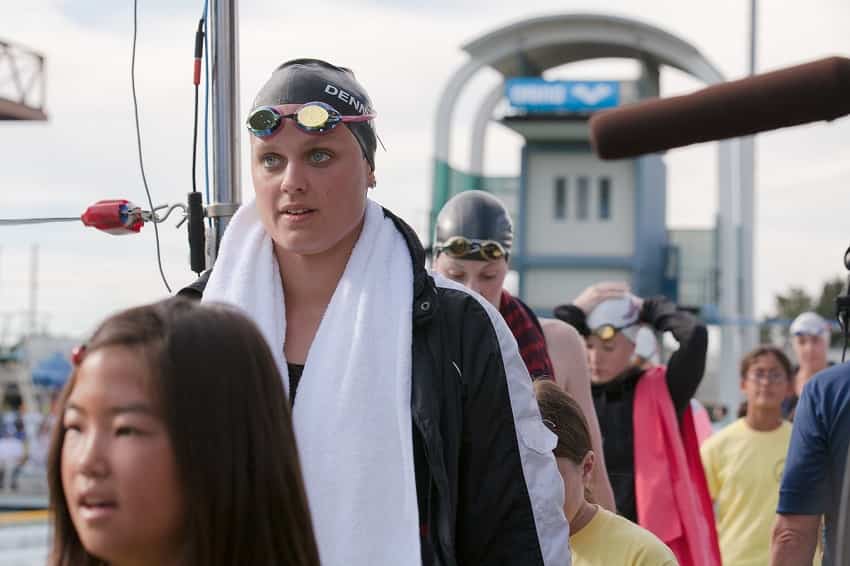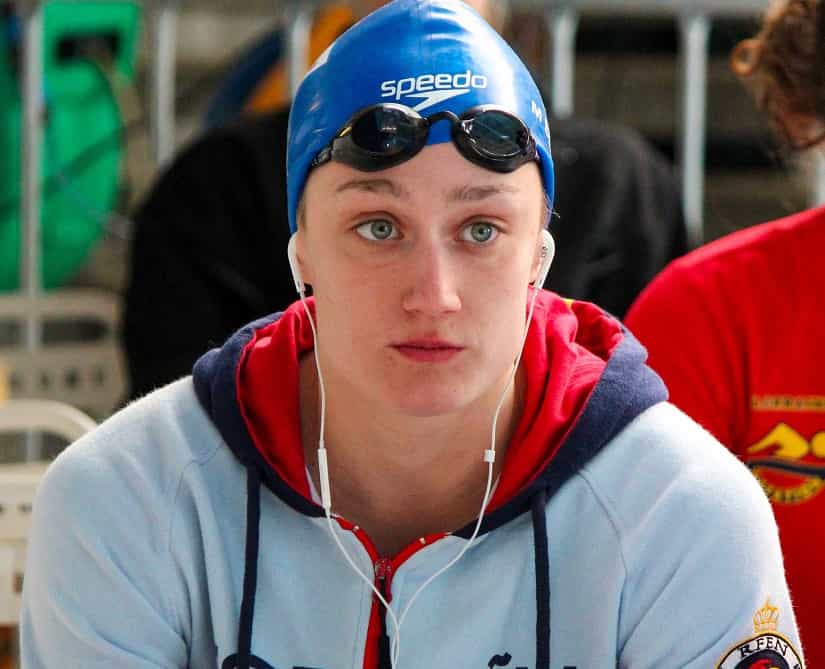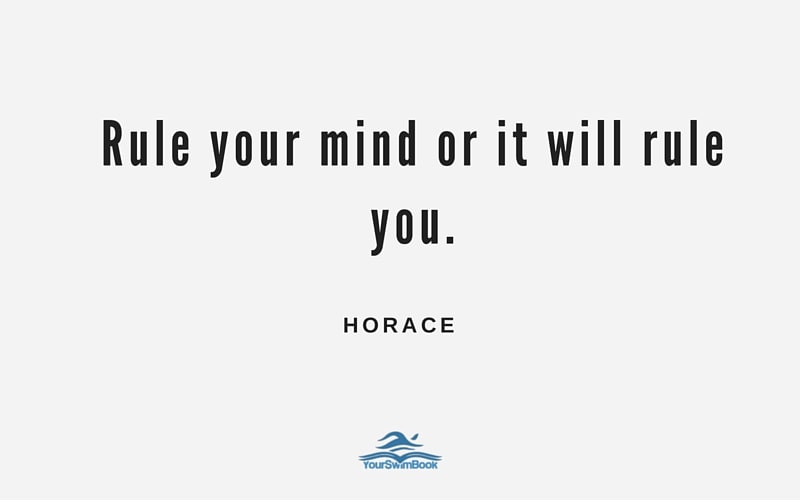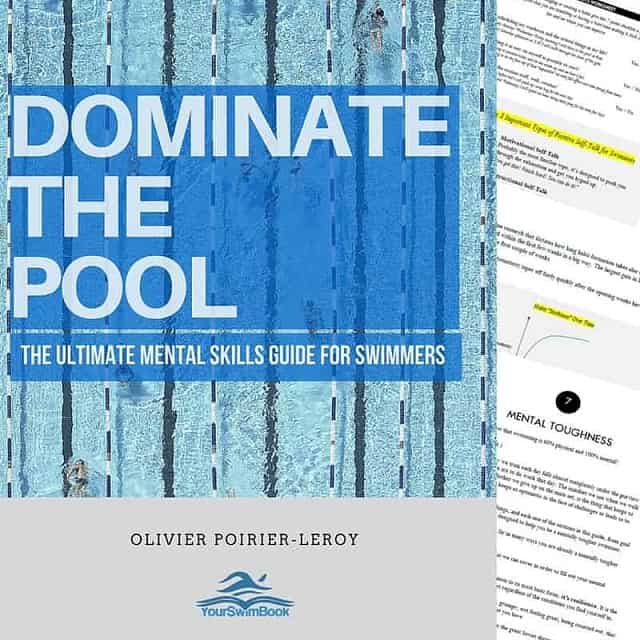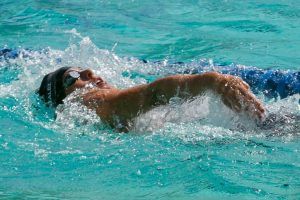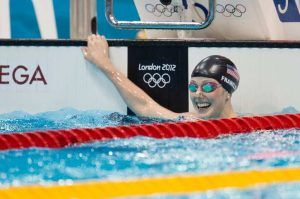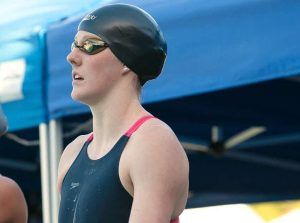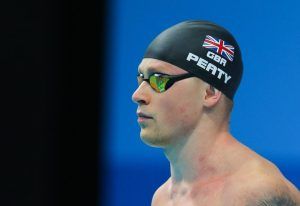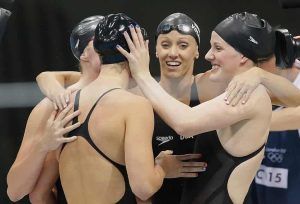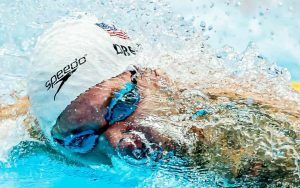Coaches and great swimmers often talk about how critical the mental side of the sport is. That big races are often decided by who wants it most or who is mentally toughest.
And this makes sense. After all, swimmers at the elite level have all put in massive numbers of meters and yards. From swimmer to swimmer the talent and work done is not really that much different. At the highest level things like mental toughness, calm under pressure and belief become the deciding factors in those races.
But what about the developing swimmer? The up and coming age grouper that is beginning to make some waves and is looking to add to their repertoire of skills by learning and mastering the mental side of the sport?
Today we’ll discuss some considerations for what age swimmers should start mental training.
This topic originates from a great question I received from a swim parent via the YourSwimBook newsletter:
My son is 9 years old, and talks often about the things he wants to achieve in the sport. At what age do you think it is appropriate for him to start working on mental training?
What Does Mental Training Include?
The topic of mental training is a fascinating and deep one that covers many aspects of a young swimmer’s training.
It can include:
- Learning how to set goals.
- Being able to break down and create actionable plans for those goals.
- Understanding how to focus and manage anxiety levels.
- Being able to coach themselves through tough situations via self-talk.
- Using visualization to better condition desired outcomes.
- And so on.
If there is one over-riding purpose to mental training it is this: to help young swimmers fulfill and make the most of the physical work they put in each day at practice.
To be able to stand up on the blocks and know that all the hard work they have done previously is going to pay off.
While mental training makes sense for those striving to become elite, or for those who already are elite, at what point is it appropriate to start mental training for young swimmers?
As with just about everything in life, it depends on a variety of things:
- How mature and far along the athlete is. Michael Phelps was setting goals at the age of 8-years old. His coach, Bob Bowman, taught him from an early age to use visualization techniques each night before bed as well. I can remember setting goals as a 9-10 year old. Maturity includes the young athlete understanding that these skills are complimentary to the work being done in the water, and not a band-aid for insufficient training. Athletes develop drive and self-awareness at different rates and ages.
- How competitive the athlete is. While good mental training skills can be beneficial to every level of swimmer (things like being able to set and manage goals is a life skill, after all), it applies more to swimmers who have concrete and achievable goals versus swimmers who are in it the sport for enjoyment or health reasons.
- How willing the athlete is to learn and apply the tools. While direction is provided from the coach and parents, the impetus to engage in mental training skills should originate from the swimmer.
- How structured it is within the overall training program. Athletes should be working with their coaches (and parents) to help assess and address mental training objectives. Regular feedback and evaluation is helpful. Instead of viewing mental training work as a beginning-of-the-season thing, or something that is only done in the case of a poor performance, make it a regular part of a structured program to yield maximum benefit.
So unfortunately there is no specific, blanket answer to be given. (Sorry.)
But there are three reasons mental training—in one form or another—should start early.
1. Mental training is scalable.
The depth you want to get into varies by competitiveness, age, and willingness. It can be as simple as having a goal sheet and writing out what you are going to do to achieve them, to having a comprehensive plan that addresses visualization, etc.
How deep you get into it can be and should reflect how involved and mature you are as an athlete.
2. Mental training should be unique to your strengths & weaknesses.
The versatility with mental training is endless and customizable to your particular situation in the pool. Some swimmers have a hard time dialing down the excitement at the big race. For others it’s not being able to be consistent enough in practice.
Think of mental training skills as a toolbox for your swimming—to be applied where needed.
3. Mental training is a lifelong skill.
There is a quote by Horace at the beginning of “Dominate the Pool” that sums up the book, and it is something I have plastered on the cork-board above my computer:
All too often we give up on things we are passionate about, or don’t give a full effort, or lack the confidence to do something, not because of a lack of something physical, but because of how we mentally feel about something.
Understanding how goals work, how to become resilient, and how to stay calm when things are going awry are lifelong skills that you can use in every area of your life, and not just in the pool.
The Takeaway
One of the things I love about swimming—and sport in general—is that it is a proving ground for life. We learn how to set goals, how to put a plan together in order to achieve them, and experience moments of failure where we can choose to learn resiliency.
All things that will serve us well long after we hang up our racing suit for the last time.
Fun Fact: Every copy of YourSwimBook comes with a 76-page mental training skills eBook called “Dominate the Pool.”
It’s a comprehensive mental training guide for swimmers that covers goals, habits, mental toughness, and everything in-between. It shows up in your inbox within 24-hours of ordering YourSwimBook, and is free with your order.

